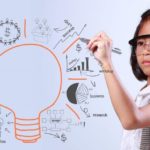Individualized Education Plans for Diverse Learning Needs
In the field of education, one size does not fit all. Every student has unique learning needs, strengths, and challenges that require a tailored approach. Individualized Education Plans (IEPs) have emerged as a critical tool in addressing the diverse learning needs of students. This article explores the significance of IEPs and how they accommodate the individualized learning requirements of a diverse student population.
An Individualized Education Plan is a personalized roadmap designed to meet the specific needs of students with learning disabilities, developmental delays, or other challenges that may affect their academic performance. The IEP is developed collaboratively, involving teachers, parents, and, in some cases, the students themselves. It outlines the student’s present levels of performance, sets measurable goals, and identifies the specialized instruction, services, and accommodations necessary to support the student’s educational journey.
One of the primary benefits of IEPs is their ability to provide targeted support for students … Continue reading >>>











